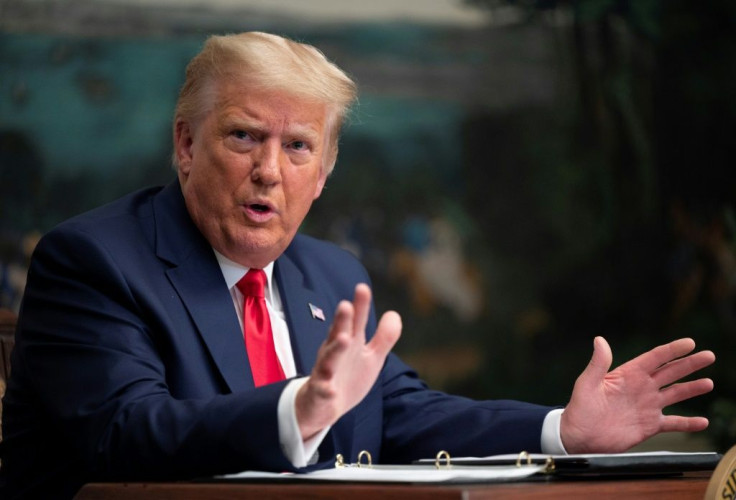What Is Section 230? Trump Threatens Veto Over 1996 Internet Service Shield
KEY POINTS
- Section 230 protects internet services companies from indecent content posted by users
- The bill passed in 1996, long before social media existed
- The courts have routinely sided with social media companies in arguments against protection
President Donald Trump threatened to veto a defense bill over a 1996 law that shields websites from liability over content created by their users.
The president said he would veto the $740 billion National Defense Authorization Act over Section 230 of the Communications Decency Act, which he called a “liability” that leaves national security and election integrity exposed to risk because of the protection it provides to “Big Tech”
.....Therefore, if the very dangerous & unfair Section 230 is not completely terminated as part of the National Defense Authorization Act (NDAA), I will be forced to unequivocally VETO the Bill when sent to the very beautiful Resolute desk. Take back America NOW. Thank you!
— Donald J. Trump (@realDonaldTrump) December 2, 2020
The full telecommunications act from 1996 went through various iterations before it finally passed in the Senate by an 81-15 vote – including a Supreme Court decision to strike down measures related to pornography on First Amendment grounds.
Among its various intentions, the act says companies providing internet services are not themselves publishers and are therefore shielded from user content that may be deemed indecent, offensive or otherwise obscene.
“No provider or user of an interactive computer service shall be treated as the publisher or speaker of any information provided by another information content provider,” the section reads.
Social media companies such as Twitter and Facebook did not exist when the measure passed. Neither did Google.
Since their development, the courts have repeatedly sided with those companies. However, in Force v. Facebook, plaintiffs argued that Facebook was unlawfully providing Hamas, the Palestinian group designated as a terrorist group, with a platform for communication. On appeal, the plaintiffs said the lower courts improperly shielded Facebook under Section 230.
The U.S. Court of Appeals for the Second Circuit in 2018 ruled otherwise, noting in its opinion that Facebook’s terms of service at the time specified that users “own all of the content and information” they post on the site and therefore Section 230 protection applied.
The president’s reference to election integrity may relate to a series of comments he himself had made on social media platforms regarding the outcome of the Nov. 3 contest. One estimate, from Variety magazine, finds the president was flagged at least 200 times for posting, or reposting, misleading material related to the election online, like this recent claim.
Trump and his legal defense team have argued, without evidence, that the election was rigged or otherwise fraudulent, though he has allowed the transfer of power to President-elect Joe Biden to proceed.
Politico noted Wednesday this is the second time the president has threatened to nix the defense measure. The first time was over a provision to revoke the names of Confederate-era leaders from military bases.
Politico added that both chambers passed versions of the bill that would be near-veto proof. One staffer on the Democrat side told Politico the latest salvo from the president was a “joke.”
“This is a complex debate that has no business as an eleventh-hour airdrop,” the staffer was quoted as saying.

© Copyright IBTimes 2024. All rights reserved.





















